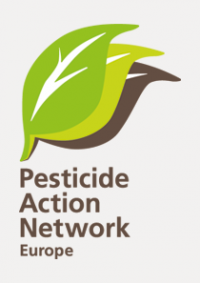Reports
TFA: The Forever Chemical in the Water We Drink
Only a rapid ban on PFAS pesticides and F-gases can save our water
Banning glyphosate-based herbicide at national level
In November 2023, the EU renewed the approval of the active substance glyphosate for 10 years, despite ten EU Member States not voting in favor. This decision was made in disregard of major objections from scientists, policymakers, and the general public. It overlooked numerous reported adverse effects linked to glyphosate exposure documented in scientific literature. It also downplayed several data gaps and pending issues, identified by the European Food Safety Authority (EFSA).
PAN Europe - Activity Report 2023
Pesticide Action Network (PAN) Europe is the regional centre for Europe within a global network of over 600 non-governmental organisations, institutions and individuals in more than 60 countries worldwide. There are four other autonomous regional centres: North America, South America, Asia-Pacific and Africa. PAN Europe counts 49 members among consumer, public health, and environmental protection organisations, women's groups and educational associations, from 28 European countries of which 23 are in the EU.
TFA in Water: Dirty PFAS Legacy Under the Radar
A joint research by the European Pesticide Action Network (PAN Europe) and its members revealed a sharp increase in the contamination of European fruit and vegetables with pesticides from the problematic chemical group of PFAS, also known as 'forever chemicals'. We now focus on their terminal degradation product, the highly persistent chemical trifluoroacetic acid (TFA). We analysed 23 surface water and six groundwater samples from ten EU countries for TFA residues and other PFAS. The extent of the contamination is alarming and calls for decisive action.
EU pesticides export ban: what could be the consequences?
EU pesticides export ban: economic costs and beneficial effects
Toxic Harvest: The rise of forever PFAS pesticides in fruit and vegetables in Europe
Fruit and vegetables in Europe are increasingly contaminated with PFAS pesticide residues. This is shown in the analysis of official data from the national monitoring programmes of pesticide residues in food in Member States. The number of European fruit and vegetables with detected PFAS pesticide residues has nearly tripled between 2011 and 2021, with a growth rate of 220% for fruit and of 274% for vegetables.
It rains pesticides from greenhouses: The end of a myth, greenhouses are releasing pesticides into the environment
The EU makes exceptions for the use of very toxic pesticides in greenhouses. To do this they presume these are closed places, with no release of pesticides into the environment. This report shows that greenhouses are not closed systems. They do leak toxic substances into the environment. We tested rain and surface water samples for greenhouse areas in Belgium, Germany, The Netherlands and Spain. The results are alarming: we found 62 different pesticide residues. We found a cocktail of up to 35 pesticide residues in a single sample.
Europe's Toxic Harvest: Unmasking PFAS Pesticides Authorised in Europe
Executive Summary
We reveal the presence of eternal pollutants (PFAS) among pesticide active substances. These hazardous substances are exempted from the forthcoming European restriction, while their use in agriculture is rising. Immediate action is needed to get them banned.
Pesticides: Play it safe!
We asked IPSOS to survey consumers about their views on pesticide use. This report presents the findings of a public opinion poll in six Member States of the European Union: Denmark, France, Germany, Poland, Romania and Spain. The six countries were chosen to give a good indication of attitudes across the EU as a whole in all its geographical, climate, political and economic diversity. The survey was conducted in August 2023 by the European Public Affairs team of the market research agency IPSOS.
Glyphosate is polluting our waters all across Europe
The current levels of glyphosate use in Europe have resulted in widespread contamination of the environment, with the herbicide being detected in human urine, house dust, soils, and surface waters. Scientific evidence indicates that the concentrations of pesticides, including glyphosate, found in the environment negatively impact the quality of our water resources and put aquatic ecosystems at risk.
